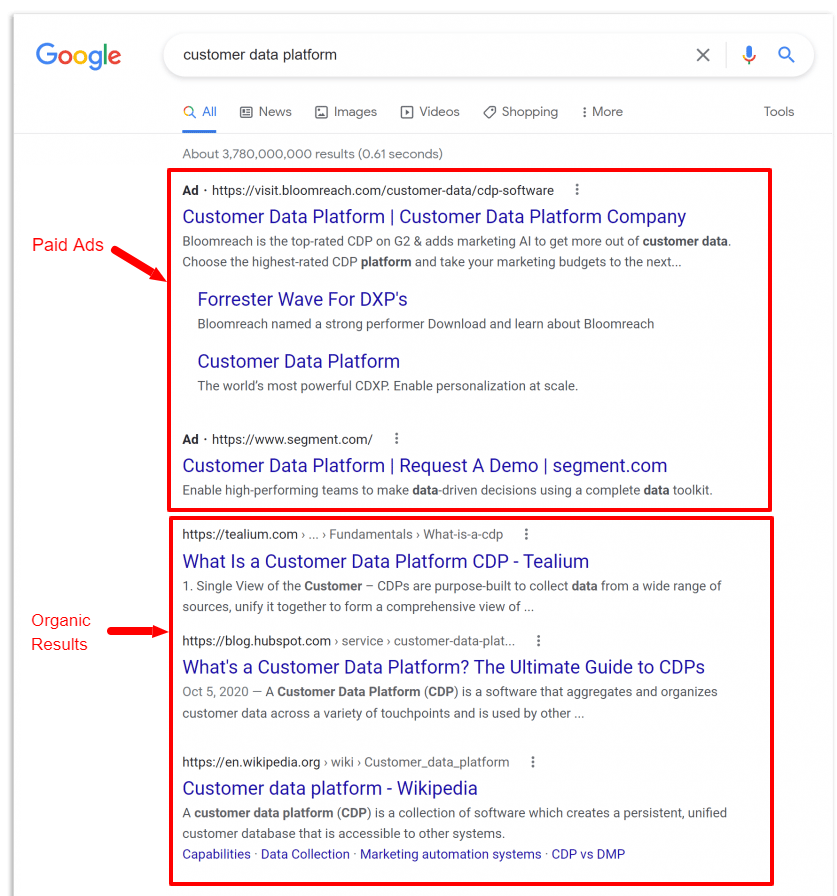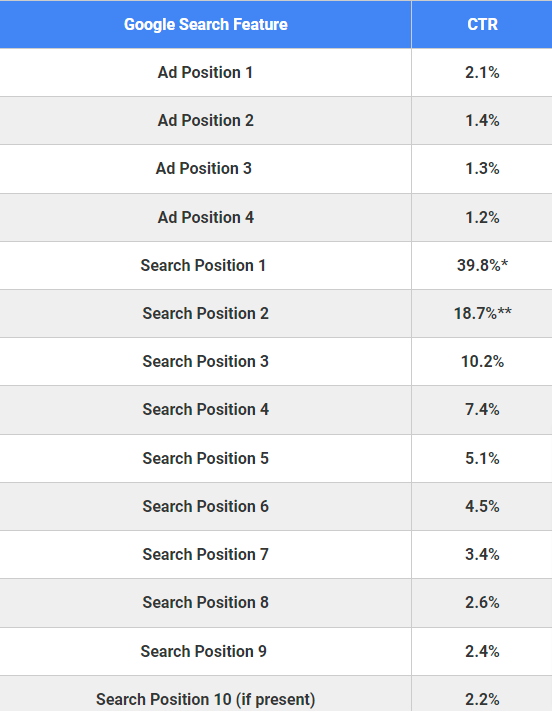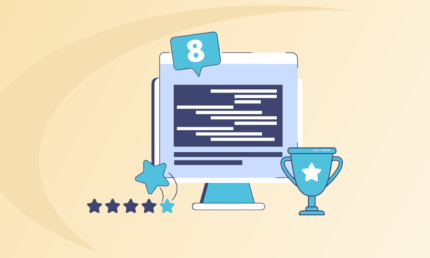Should I SEO Every Page On My Site to Get Google Traffic?
Google is officially the number #1 online place people turn to find everything they need.
According to GlobalStats, Google has a whopping 92.9% search engine market share worldwide. This means regardless of what your business offers, your potential customers are likely to be searching for products or services like yours on Google.
But if you want to attract even just a small portion of your potential customers through Google, you need to perform SEO on your website.
For the uninitiated, SEO (search engine optimization) is a set of best practices that helps to improve a website’s rankings in Google search results.
Now, if your business website has multiple web pages (i.e. one for each product or service you offer), it is critical to optimise every web page on your site.
But first, you need to understand what is webpage optimisation, how is it different from SEO, and why it is important to optimise every page on your website.
In this post, we have explained webpage optimisation, its importance, and how to optimise a web page strategically to increase organic traffic to your website.
What is Web page Optimisation?
Webpage optimisation is often referred to as website optimisation and it’s a process of improving the performance, loading speed, user experience, and ranking of a website’s web pages on Google SERPs (search engine result pages).
Simply put, the goal of webpage optimisation is to optimise web pages to load faster and rank in top positions in Google search results for relevant keywords.
Doing webpage optimisation is important because it can help to rank higher in SERPs, increase website traffic, and generate qualified leads for your business.
But if you’re still not convinced, we’ve explained several reasons to optimise every webpage on your website in detail.
5 Reasons to SEO Every Webpage on your Website
As you have just learned, webpage optimisation is an essential part of any SEO strategy.
But to fully illustrate its importance, let’s go over a couple of reasons to optimise web pages on your website.
Helps Google Understand your Webpages
Search engines like Google cannot process context and visual information to determine what a webpage your site is about. They can only determine the topic of a webpage based on text and HTML elements.
Google indexes this information in its database, so when users search for specific topics or search terms, it can provide the most relevant pages in the Google SERPs (search engine result pages).
That means if you have not optimised web pages with the necessary information that search engines need to understand, Google won’t be able to comprehend what your webpage is about.
Because of this, your web pages won’t be able to rank well in SERPs. Even worse, your website won’t show up in Google Search results.
So if you want your website to attract potential customers, you need to ensure that search engines like Google can understand the web pages on your site. And the more web pages you optimise, the more keywords you’re likely to rank for in search results.
Enables Every Webpage to Rank for Different Target Keywords
If you have multiple web pages on your website, you can optimise them to rank for different keywords and search terms.
For example, if you have 20 different web pages on your website, they could potentially rank for 20 or more different keywords in Google search results.
However, one thing you need to keep in mind is that Google only shows one web page from any given website in its search results for relevant keywords or search terms.
So, if you optimise five web pages for the same target keyword, they’ll end up competing with one another in search results.
That’s why it’s critical to optimise each webpage for a different keyword so that it can compete with competitors’ pages instead of your own.
Attracts Potential Customers to your Website
Webpage optimisation can help to get your business in front of your potential customers who are actively searching for your products or services on Google.
According to HubSpot research, nearly 62% of consumers turn to Google and other search engines when they want to learn more about a product, service, or business.
Not only that but 41% of consumers use Google to make purchases on the internet.
Considering how frequently consumers turn to Google to find information, it is most certainly a huge opportunity to attract potential customers to your website.
The point is, web page optimisation can help to become a part of your potential customers’ online research process and attract them to your website through Google.
You Don’t Have to Pay for Ad Space
Another reason to optimise your web pages is you don’t have to pay for ad space in Google SERPs.
Let’s understand this with a screenshot of a typical search engine results page (SERP).
As you can see from the above screenshot, the first two listings on the SERP are paid ads and the same are denoted by a small “Ad” tag to them.
But the sites that are appearing below those two paid listings are organic listings, meaning that they’re not paying a single penny to show up there.
With proper web page optimisation, your website can appear in such organic listings for relevant keywords as well.
You just need to make sure that your web pages are optimised and provide value to the searchers and you’ll never have to pay anything to rank in those organic spots in SERPs.
Organic Rankings Get More Clicks in SERPs
The best part about web page optimisation is not that it makes your website appear in the top organic search results. But the organic search results actually get more clicks than paid listings in SERPs.
According to research, over 95% of searchers skip paid ads on Google SERPs and go straight to organic search results.
That means, when your website appears in the top organic search results, it can earn the highest number of clicks from Google without paying a single penny.
How to Optimise your Webpages to Get Google Traffic
Now that you have learned what is webpage optimisation and its importance, it’s time to discuss how to optimise every page on your website.
To optimise a web page, you need to implement a combination of on-page SEO, off-page SEO, and local SEO strategies to rank in the top organic spots in Google SERPs.
On-Page SEO Strategies
On-page SEO is a set of practices that focuses on helping Google understand your web pages better in order to improve its rankings in organic search results.
Here are the most important on-page strategies you need to implement for optimising your web pages to rank in top organic search results.
- Use H1 Tag for Page Title — The H1 heading tag helps Google to understand the topic of your web page. That’s why it’s a best practice to use one H1 heading tag for the title of every web page you want to optimise.
- Use H2-H6 Tags for Subheadings — Using H2-H6 tags across your web page can help to improve the content’s visual hierarchy and make it easier for both search engines and users to skim and digest information.
- Write a Compelling Title Tag — Besides using the H1 tag for the title of your web page, you need to make your titles compelling enough to click on. Ideally, your title tag must be under 70 characters, to the point, matches the search intent, and most importantly, includes your primary target keyword.
- Write a Compelling Meta Description — Meta description is not a ranking factor but they can certainly improve your CTR because Google often shows them below your web page’s title in the search results. Just like the title tag, your meta description should be under 160 characters, match the search intent, give searchers a reason to click on, and include your primary target keyword.
- Create SEO-Friendly URL — Along with a compelling title and meta description, you need to create a descriptive URL for each web page on your website. Google recommends using words and phrases that are relevant to your web page’s content. However, it is recommended to set your primary target keyword as the URL for each web page.
- Optimise Images — If you have included images or relevant visuals in your web page’s content, it is a best practice to optimise them. When you optimise your images for Google, they can rank in Google Image search results and send relevant traffic to your website. To optimise an image for SEO, set a descriptive filename that includes your primary or secondary keywords. The same rules apply to the image alt tags as well.
- Implement Structured Data — Structured data is not a direct SEO Ranking Factor but it can enhance your webpage’s appearance on SERPs, which can lead to more clicks.
Off-Page SEO Strategies
Off-page SEO refers to the set of SEO activities that you do outside of your website to improve its search engine rankings.
Here is the list of the best off-page SEO activities you can leverage to optimise your web pages in Google search results.
- Link Building — Link building is a highly-impactful off-page SEO activity that can boost your search engine rankings. The more backlinks you earn or acquire, the higher authoritative your website is in the eyes of Google. However, if you’re building backlinks, make sure to acquire from authoritative and relevant sources from your industry.
- Content Marketing — Content Marketing involves producing unique, quality, and helpful content and finding relevant channels to distribute that content in the hopes of gaining more attention, establishing E-A-T, and earning natural backlinks.
- Digital PR — Digital PR is one of the most evergreen link-building strategies that can help to earn authoritative backlinks at scale. Additionally, it can show E-A-T, drive referral traffic, and increase brand awareness.
- Influencer Marketing — Influencer marketing is a lucrative way to build your awareness, amplify your content’s reach, and expand your audience reach in a short time. The process involves partnering with popular bloggers or social media influencers in your industry and working with them to promote your products or services.
- Content Syndication — Content syndication refers to the act of republishing your content on content syndication platforms such as Medium, LinkedIn, Outbrain, Quuu, etc. If you’re going to perform this off-page SEO activity, just make sure that the syndicated version of your content is linking back to the original one and that proper canonical tags have been configured.
Local SEO Strategies
As the name suggests, local SEO is about increasing your website’s rankings in local search results.
Local SEO may seem like the easiest compared to on-page and off-page SEO. But it’s not necessarily true.
To make it easier, we’ve shared the top local SEO strategies that will make a significant impact on your web page’s local search rankings if implemented correctly.
- Set up Google Business Profile — If you’re a local business trying to acquire new customers through your website, you must set up a Google Business Profile (GBP) for your business. GBP is a free local listing by Google itself that allows your business to appear in search results for local keywords and search terms.
- Get Reviews on your GBP — Reviews are an important factor that Google considers when ranking websites for local search results. That’s why you should encourage customers to write reviews on your GBP and respond to them, whether good or bad, to show Google that you value your customers’ feedback.
- Perform Local Keyword Research — Local keyword research is about finding out keywords and search phrases your potential local customers use to search for products or services like yours. For example, if you’re a plumber in Perth, targeting “plumber in Perth”, “Emergency Perth plumber”, “24 hr plumber Perth”, etc. might be good target keywords to optimise your web pages.
- Create Local Landing Pages — Finding local keywords that are related to your products or services is not enough to win top rankings in local search results. You should also consider creating dedicated local landing pages because it allows you to target LSI keywords as well. For example, If your company offers free digital marketing tools, your potential users don’t necessarily search “Digital Marketing Tools” in Google Search. They may also search for “keyword research tool”, “SEO audit tool”, “Backlink Analysis tool”, and so on. So, it makes sense to create dedicated landing pages for these services as well.
- Get Featured on Local “Best of” List Posts — Last but not least, try to find and get featured on local “best of” list posts for your products or services. For example, if you’re a local WordPress development company, find the ‘best WordPress companies’ list posts and have your company name included in those list posts. Doing so will increase qualified referral traffic and get you backlinks that will ultimately increase your rankings in local search results.
Concluding Thoughts
As you have just learned, optimising each web page on your website for different target keywords is the best strategy for increasing your website traffic from Google.
If you don’t have in-house resources to perform webpage optimisation for your website, Supple can help!
Feel free to reach out to us at any time to get our professional consultation.
DIGITAL MARKETING FOR ALL OF AUSTRALIA
- SEO AgencyMelbourne
- SEO AgencySydney
- SEO AgencyBrisbane
- SEO AgencyAdelaide
- SEO AgencyPerth
- SEO AgencyCanberra
- SEO AgencyHobart
- SEO AgencyDarwin
- SEO AgencyGold Coast
- We work with all businesses across Australia




